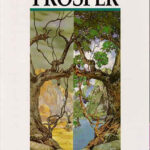
Sola Scriptura – Lordship & Culture
Sola Scriptura – Lordship & Culture
Written by
Culture is the public manifestation of religion. How should Christians relate to and participate in culture?
Biblical Worldview Academy
2017 Reformation 500 Conference

Applying The Covenantal Worldview
Applying The Covenantal Worldview
Written by
In this edition of Setting the Record Straight, Dr. Jason Garwood further elucidates the issue of covenant theology, specifically the 5-point model, and demonstrates ways this can be applied to varying philosophies we see today. Listen in as Dr. Garwood unpacks for us several examples of application that is sure to help you fight the good fight of faith. Thanks for listening!

Christendom: Westminster’s Forgotten Legacy
Christendom: Westminster’s Forgotten Legacy
Written by
Narrated by Lucus Bell
Read the article Christendom: Westminster’s Forgotten Legacy

#31: The Meat of the Word Q&A
#31: The Meat of the Word Q&A
Written by

How Big Is The Gospel?
How Big Is The Gospel?
Written by
How Big Is The Gospel?

The Hebrew Roots Movement, Antinomianism, and Joel McDurmon
The Hebrew Roots Movement, Antinomianism, and Joel McDurmon
Written by
In this episode we will look at the extremes of the spectrum on God’s Law between the Hebrew Roots observant and the Antinomian and look to find a bit more rooted understanding from Joel McDurmon.

Christian Culture vs. Clan Culture
Christian Culture vs. Clan Culture
Written by
Narrated by Bobby Mullen
Read the article: Christian Culture Vs Clan Culture

That You May Prosper
Written by Ray Sutton
The Long Neglected Covenant
To borrow from Will Rogers’ comment on the weather, “Everyone talks about the covenant, but nobody does anything about it.”
There is a good reason for this: in the history of Christianity there has never been a theologian who has explained to anyone’s satisfaction just what the Biblical covenant is. We have heard about “covenant theology” since Calvin’s day, but can anyone tell us just what Calvin said the covenant is, how it works, and what common features are found in every Biblical covenant? Can anyone describe just exactly what the seventeenth-century Puritans had in mind when they used the word? They couldn’t?
Have you read anywhere that the covenant is an inescapable concept, that it is never a question of “covenant vs. no covenant,” that it is always a question of whose covenant? Has anyone explained how all societies have imitated the Bible’s covenant model, or how Satan has adapted a crude imitation of the Biblical covenant?
Until Ray Sutton cracked the code of the Bible’s covenant structure in late 1985, no one had gone into print with a clear, Biblically verifiable model of the covenant – or if anyone did, no trace of his work has survived. Covenant theologians have never adopted it.
You may check this for yourself. Read any book dealing with the Biblical covenant. See if it explains: (1) the structure of the covenant; (2) the uses of the covenant model in Bible history; (3) the application of the same covenant model in Bible texts, Old and New Testaments; (4) the history of the covenant’s impact in the West; and (5) the continuing authority and importance of the Biblical covenant in modern life: church, state, family, business, etc.
Ray R. Sutton’s, That You May Prosper, will reshape covenant theology. Better put, it will actually define covenant theology from this point forward. At present, covenant theology has no shape, which is the whole problem. Sutton was given the opportunity of a lifetime, of a millennium, of two millennia: to take what has to be one of the four or five most important doctrines in the Bible and, for the first time in Church history, to sort it out according to what the Bible really says. Few men ever get such an opportunity; fewer still take advantage of it. Unfortunately, those who miss such an opportunity have a tendency to resent others who didn’t.
Sutton’s discovery is unlikely to be adopted by seminary professors and professional theologians in this generation. They suffer from a professional disease, NDH: Not Discovered Here. Those outside the hallowed halls of ivy are not expected to make fundamental theological breakthroughs as important as this one. This one is the major breakthrough of the last four centuries, at the very least. It had been right under everyone’s nose the whole time. Therefore: NDH. It just couldn’t be true. But it is. And the Christian world will never be the same

#30: The Meat of the Word Q&A
#30: The Meat of the Word Q&A
Written by

What Is The Sabbath Really?
What Is The Sabbath Really?
Written by
This episode will be an intro to a podcast I will be hosting in a few weeks regarding the Hebrew Roots Movement. What is the Sabbath? When is the Sabbath? Is the Sabbath command and it laws applicable today? These and more important questions will be answered using an adaption of R. J. Rushdoony’s The Institutes of Biblical Law, Volume 1.
